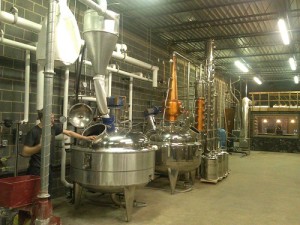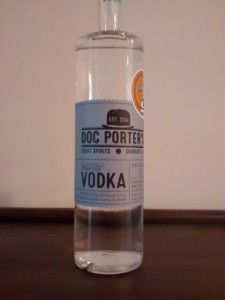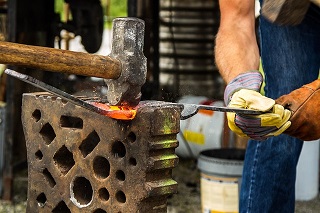This post may contain affiliate links. Please read our disclosure for more information.
I worry about the future of middle-class jobs. What’s going to fill the void between a fast-food worker and a Wall Street quant? What jobs are going to be immune to outsourcing and able to support a middle-class lifestyle?
Factory jobs aren’t going to cut it. Environmental regulations and robots will make sure that factory work becomes an increasingly rare feature of our economy. And as computing power grows, the number of middle-class jobs made obsolete by automation will grow as well. I’m 54-years-old. When I die forty or fifty years from now, I seriously doubt that delivery trucks will be driven by humans or that prescription drugs will be dispensed by humans.
So what are we to do? Just accept that our future will entail a large amount of jobless adults? Will our only rational recourse be to vastly increase the scope of our safety net and guarantee a base income for every adult in America? That would certainly reduce future poverty. But how stable will our country be with tens of millions of unemployed young men?
One possible solution that doesn’t accommodate widespread unemployment is the expansion of the craft economy. Think about it. Just a generation ago, there were few if any craft breweries. Now they’re all over the place. By one estimate, the number of craft breweries in America has exploded from fewer than 100 in the 1970s to over 4000 today. And you know what these 4000-plus craft breweries bring to the table that Big Beer doesn’t? Jobs. In Big Beer, jobs are disappearing. When Mrs. Groovy and I toured the Budweiser plant in St. Louis a few years ago, we counted two workers on the production floor. And this production floor, which was processing tens of thousands of beer-filled bottles and cans, was massive, easily the size of a football field.
I have nothing against Big Beer, of course. Budweiser makes a fine product. But when I’m in a new town, I don’t want a Bud. I can get that freakin’ anywhere. I want a Hoppy Ending Pale Ale or a Brew Free! Or Die IPA. Reaching for the brew less traveled strikes me as a fantastic win-win. It makes life more interesting for me, and it helps support the local economy.
Now a question. Can the craft revolution in beer be replicated with other products? Sure it can. There’s no reason why every town shouldn’t have its own twist on chocolate, ketchup, toothpaste, and perfume. And there’s no reason why every supermarket, Target, and Walmart shouldn’t have an aisle or two dedicated to locally produced goods.
Okay, groovy freedomists, am I off my rocker or what? Can the crafting of micro-brews, micro-toiletries, micro-condiments. micro-perfumes, and micro-whatever save us from a dystopian future of mass unemployment, mass welfare, and mass unrest? I sure hope so. Because I can’t think of anything else that’s going to reverse the decline of our middle class. There’s got to be something for the average American to do, to fill his day with constructive labor, to satisfy his hunger for entrepreneurial adventure, to give him a reasonable shot at a middle-class lifestyle. There’s only going to be so many jobs at the top. And while there will be plenty of fast-food and retail gigs in the future, those gigs will not be the foundation upon which we build a vibrant middle class.
Supporting the Craft Economy
Since I got the bug of the craft economy up a certain part of my anatomy, I decided to patronize an example of it this past weekend. Below is a picture of a sign on the front of a craft distillery here in Charlotte. Doc Porter’s Distillery was started by Andrew and Liz Porter way back in 2014. They make their signature vodka with locally grown wheat.

Andrew and Liz give tours of their distillery every Friday and Saturday. Here’s Andrew explaining how the process of turning wheat into vodka begins. Who knew that making a clear liquid with a powerful kick could be so involved?

Andrew and Liz were super hosts. And because our tour group consisted of nine friendly people, I got to ask a lot of annoying questions. Did you know that the 15-gallon oak barrels that Andrew and Liz used for their recently distilled bourbon run cost them $275 a pop? And they can only be used once?
Beware Crony Capitalism
I’m not a vodka guy. But Doc Porter’s went down very smoothly during our post-tour tasting. So smoothly, in fact, I was compelled to buy some. And fortunately for me, Doc Porter’s and all micro-distilleries in North Carolina just got permission from the state to sell their product on premises. But here’s the catch: you can only buy one bottle of spirits per year. I had to give Andrew my driver’s license so he could enter my name in a database. Now I can’t buy another bottle of vodka from Doc Porter’s shop until 3/20/2017.
While Andrew was entering my name in his database, I asked him why permission to sell on premises was only recently granted and why sales were limited to one bottle per person per year. He was after all making a legal product. Why couldn’t he make as many direct sales as possible? Well, it seems the wine and beer interests in the state don’t like the idea of unfettered competition. If anyone is going to get blotto in the state, they want to it done with wine or beer. So to get the highly constrained retail environment he now enjoys, Andrew and his distillery buddies had to fight tooth and nail with the wine and beer lobbyists in Raleigh.
Ah, the perils of crony capitalism. If the promise of the craft economy is ever going to be realized, government has to get out of the protection racket. All businesses should be equal before the law. Businesses that are very good at organizing and paying for lobbyists shouldn’t be more equal than those that aren’t.
Deregulation has a bad rap now. And given the way Wall Street behaved prior to the 2008 collapse, this is perfectly understandable. But try to remember this: not all regulations are beneficial. Regulations that ensure safety and promote transparency are good. Regulations that restrict competition are bad.
Okay, groovy freedomists, that’s all I got. Go strike a blow for liberty (and the middle class) this weekend and get comfortably numb at a micro-brewery or micro-distillery in your town.


I can dig this. Craft-everything seems like it has staying power. Etsy and Pinterest have helped this trend take off. I have a list of craft breweries to try here in Maine. The only thing I think about when people talk about AI and robots taking over is that all that stuff doesn’t run by itself. My factory has started making upgrades to robots and automatic vehicles, and it takes teams of people to assemble, train, program and maintain these machines. Someone, somewhere, is building these parts and electrical components, right? Parts wear out, electrical parts fry up and programming needs upgrades. I’m still worried about it, but I think that we are just going to change the way we teach our kids to work and make things (both micro and robo), which might not be the worst thing.
Excellent points, Brian. Human beings, especially Americans, always seem to figure things out. Maybe the robot revolution won’t be a middle-class apocalypse. But to make sure this is the case, we got to embrace the craft economy. As Seth Godin has pointed out, the world doesn’t need nearly as many cogs as it once did. Godin also made the observation that American workers can’t “out obedience” the world. There will always be people desperate enough to long hours in miserable conditions for peanuts. Thanks for stopping by, my friend. It’s always a pleasure hearing from you.
Lots of great points here. The ability to create something unique and special certainly provides the opportunity to carve out a successful niche.
For my part, there are a number of craft breweries in my neighbourhood that I frequent regularly, close to an ice cream shop that makes its own ice cream from local ingredients (sometimes even out of the local beer!), and a butcher that makes some great sausage! I love supporting these businesses because 1) they make a great product and 2) you get to know the people that your patronage is helping to support. Even if you pay more, you definitely feel like your money is going further (and to be honest, I haven’t noticed a significant price difference compared to mass-market products for anything but the meat).
Finally, in response to your reply to James, I’m only 25 here and I caught your Pink Floyd reference! It’s “classic,” not “outdated.”
Hey Katrina, we’re so sorry we missed your comment from almost ONE YEAR ago! My apologies.
I’m guessing you live in Cleveland? Breweries, ice cream, and a butcher shop. I think I know of one real butcher a few towns away that’s not located in the inside of a supermarket. In NY, getting your meat at a butcher wrapped in white paper, was standard. And it was totally worth a little extra money. No craft ice cream near us either, only chains. But we did get a brand new brewery 5 minutes away from us we’ve yet to check out!
Pink Floyd is definitely classic but still, not that many 25-year-olds are familiar.
Thanks for your comment and again, apologies for missing it.
No worries, I was posting on an old post (this is what happens when you go back and binge-read the archives), so I didn’t even have the expectation of a reply!
I actually live in Canada (Vancouver area). We are big on craft everything here, but the ice cream and the beer are definitely my favourites.
I never developed a taste for beer but I need no invitation for ice cream! I was in Vancouver for a meeting probably around 7 years ago. I only had a half day to see the city and took one of those tours to the Granville Island Market and the bird conservatory. I stayed at the Pan Pacific Hotel which was beautiful. I don’t remember much else about the city except for some totem poles in the park?
What a cool proposal: the craft economy is slowly replacing big business. I think small business is going to be key for economic growth in the next 15 to 20 years.
Big corporations have maxed out in a sense, the most innovation and new jobs come from startups and little guys. I don’t drink but I’ve seen it with the natural products industry in Los Angeles.
Big companies have trouble scaling with organic food. Big suppliers provide the antibiotic-rich, pesticide filled kind of food no one really wants to eat. So the small organic farms and natural foods companies have done great. They provide what the public actually wants and is willing to pay extra for. Look out Wal-Mart we’re coming.
Hey, Elsie. Great points. I forgot about the organic farm movement. Big companies aren’t going away, but they can’t fill the void created by globalization and automation. Most people want to work. They don’t want welfare. The craft economy–which also includes Uber, TaskRabbit, and AirBnB entrepreneurs–just might be the answer. As you so eloquently put, Elsie: “Look out Wal-Mart we’re coming.” Thanks for stopping by.
(I’m craving a beer now.)
Some great thoughts in this article! Small businesses (and “new” small businesses specifically) provide most of the job growth in the USA. We really need to support these smaller ventures.
Of course the challenge is that many smaller ventures have a hard time pricing as competitively as the huge stores, which is a problem for those of us who are uber-frugal. But that isn’t always the case either, so lets not assume and at least try to support our local (and “craft”) ventures as much as possible.
So we need more entrepreneurially-oriented people to start local businesses, and we need to make sure people continue to support them. Let’s do it.
Hey, Brad. I couldn’t have said it better. It’s certainly a conundrum. We advocate frugality and that runs counter to supporting the craft economy. The craft economy, in turn, is one way to mitigate the effects of globalization and robotics. Perhaps we could up our spending on the craft economy just a little? Spending just five percent of our take-home income on the craft economy would do wonders.
Hey, Emily. Great point. Definitely have to do a little more research on ABC. If I remember correctly, the ABC board got in a lot of trouble a few years ago for saddling the NC taxpayers with a $7,000 dinner bill! We hear a lot these days about crony capitalism. We don’t hear nearly enough about crony socialism. I’m working on getting an interview with Andrew Porter so we can explore the promise and the hurdles of the craft economy. I’ll make a point of discussing ABC (providing I do my homework, of course). Thanks for pointing out this glaring omission on my part. Appreciate it.
I’m surprised you didn’t mention one of the worst government intrusions on free enterprise: the government held monopoly that is the NC ABC boards and stores. The state holds a very lucrative monopoly on liquor sales, which is why the rules on your Vodka brewer are so strict (no meaningful competition). Even I hate the ABC stores: no competition means higher prices and often mediocre selections than what you see when you cross over into SC or TN.
I think we’ll return to the craft/uber-local economy. At the end of the day, we’re still human beings and genetically engineered to be social. In my region of the United States, this translates to many breweries, farmers markets, community gardens, etc. I foresee a future where computers perform all unwanted labored, while we humans are freed up to enjoy specialized crafts.
(And by the way – my friend just told me this awesome story about he met a chocolatier! I didn’t even realize those still existed!)
Hey, Katasha. Thanks for stopping by. Excellent point. We are social animals. That’s another thing that will help propel the craft/uber-local economy. Check out the Anthony Bourdain clip in the below link. Greedy Greg’s is the kind of entrepreneurship I want to see more of.
http://freedomisgroovy.com/wanna-start-a-business-good-freakin-luck/
“I worry about the future of middle-class jobs.”
I as well. As you are aware, I’ve written a couple pieces recently that talk about the sharing economy, a development that is interesting in its own right. Perhaps the answer to stop the hollowing out of the middle class is a movement to craft (goods) and sharing (services) economies?
“Go strike a blow for liberty (and the middle class) this weekend and get comfortably numb at a micro-brewery or micro-distillery in your town.”
I’m queueing up Pink Floyd as part of my preparation!
Excellent point about the sharing economy. I’m waiting for the food equivalent of Airbnb to break out (Meal Sharing, Eat With, etc.). I think this is an excellent side-hustle or business opportunity for people who have struggled in our global economy. And this is what I love best about the craft and sharing economies: you don’t need a piece of paper (e.g., a college diploma) to participate in it. Thanks for stopping by, my friend. And thanks for recognizing my Pink Floyd reference. Mrs. Groovy and I were wondering who would pick up on it. Cheers.
With respect to the reference, I suspect those of a certain age (>45?) are more likely to pick up on it. I’m 49, working my way to 50 at the end of the year, so it’s right in my wheelhouse.
So true, James. As a former military man who is just a little younger than I, I’m sure you’re also familiar with Charlie Daniels and Lynyrd Skynyrd. Fun stuff. It’s hard to believe that “my” music is so outdated. I guess that’s the price of aging.
I will be shocked if many people are driving in 40 or 50 years. I was listening to a podcast the other day about how drivers ed may well be obsolete for kiddos who are born in the next few years. I do think (and hope!) that there will be a return to craft and local goods. I don’t drink beer, but I feel similarly about a local tea shop that sells ethically sourced and unique blends of tea. The boon of farmers’ markets, meat trucks, and local farms selling raw milk to us suburbanites makes me really happy. These markets all seem to be expanding, at least in the Midwest!
Hey, Penny. I hear ya about the self-driving cars and trucks. My nephew is going for a CDL license. I warn him that the truck driver will likely go the way of the telephone operator in the not-too-distant future and he should develop a fall-back plan. He nods in agreement, but I think he’s mainly trying to humor me. We’ll see. The boon in Midwest farmers’ markets is welcome news. I hope the trend spreads to other regions. And when you get a chance, let me know the name of the local tea shop. I’m very intrigued by the craft economy and I want to learn about those who are engaged in it and not brewing beer. I recently heard about a craft chocolatier in Massachusetts called Rogue.